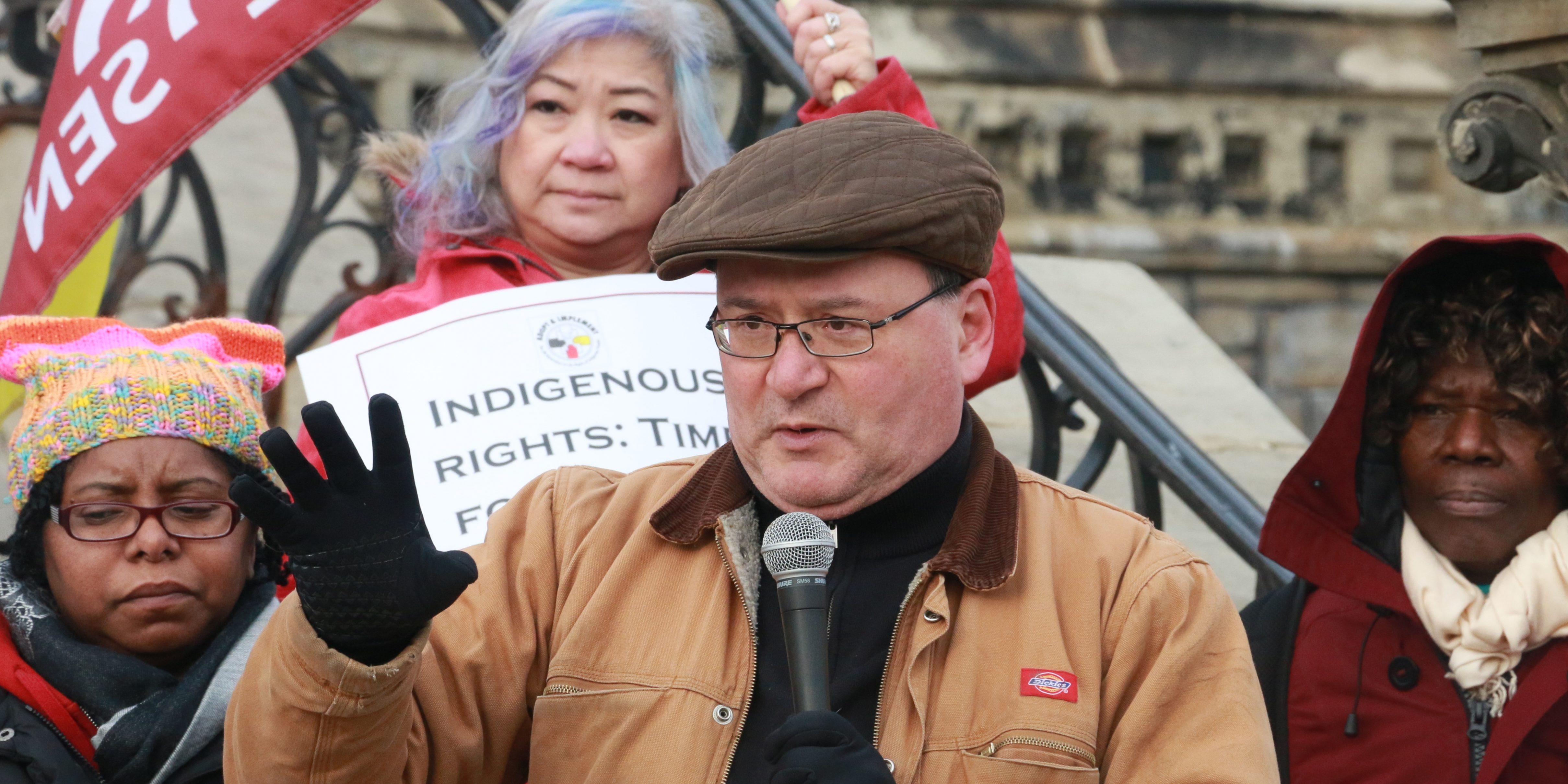
December 4, 2017 IITIO President, Wayne Garnons-Williams, on Parliament Hill with Romeo Saganash in support of Bill C 262
IITIO president, Wayne Garnons-Williams, was Invited to speak at a rally on on Parliament Hill today with Romeo Saganash, Member of Parliament for Abitibi—Baie-James—Nunavik—Eeyou in support of Private Members Bill C-262 on the United Nations Declaration on the Rights of Indigenous Peoples (UNDRIP). Wayne spoke about the need to have domestic legislation in Canada, making UNDRIP enforceable in domestic law. Wayne finished his speech by wishing the bill’s sponsor, Member of Parliament, Romeo Saganash the very best luck in the House of Commons debates the following evening in his efforts to get the laws of Canada to respect the UNDRIP.
Indigenous Organizations like IITIO welcomed the announcement on March 3 of 2017 that the Canadian government is taking steps to endorse the United Nations Declaration on the Rights of Indigenous Peoples. We urge the government to embrace this vital human rights instrument without qualifications.
The Declaration provides a principled and normative framework for partnership and reconciliation between states and Indigenous Peoples. Its adoption was heralded around the world by Indigenous Peoples, states, human rights organizations and the United Nations. Its provisions provide much needed guidance to governments, state institutions and society as a whole on how human rights laws and obligations can be best understood and applied to the distinct circumstances and the urgent needs of 370 million Indigenous People around the world.
IITIO is intrigued by the meaning of what is intended by the government of Canada in stating that it will take steps to endorse the Declaration “in a manner fully consistent with Canada’s Constitution and laws”. In opposing the Declaration in the past, the government had claimed that there were unspecified and unsubstantiated incompatibilities between the Declaration and the Canadian Constitution. As affirmed in an open letter from more than 100 experts on Constitutional and international law aspects relating to Aboriginal rights in Canada, there is no contradiction between the Canadian Constitution and the Declaration.
Furthermore, human rights standards should not merely condone or sustain the current practices and preferences of states, whether or not those practices and preferences are expressed in domestic law. To limit UN declarations in this way would defeat the purpose of having international standards, which are meant to inspire and guide improved protection for human rights, not simply reinforce the status quo.
It is arguable that to require the provisions of the Declaration to be interpreted in accordance with the constitution and laws of each nation-state could serve to legitimize any existing injustices and discrimination in domestic situations with its indigenous peoples. It could very well also undermine the principle of “universality” that applies to all human rights.
Human rights are generally relative in nature so that the human rights of all are respected. This International Universality of International legal instruments like that of the UN Declaration on the Rights of Indigenous Peoples reflects and builds upon international human rights standards. It does not exist in a vacuum and allows for full consideration of both relevant international law and domestic law. In interpreting human rights and related state obligations, domestic courts may choose to consider declarations and other international instruments. Such dynamic interaction between domestic and international law is well-established in Canada.
The Declaration is a living instrument that is broadly supported and has universal application. It provides a crucial context and framework towards ensuring justice, as well as the dignity, security and well-being of Indigenous Peoples worldwide. The development of bringing UNDRIP into enforceable Canadian domestic law would be a significant step forward for Canada’s Indigenous peoples.






